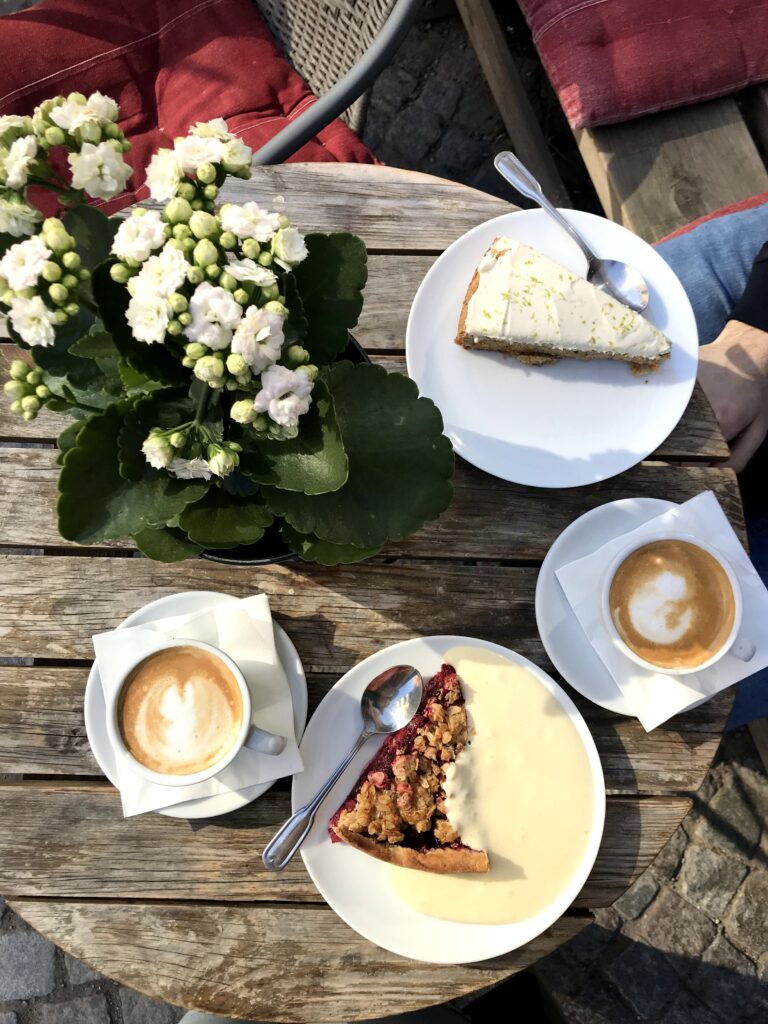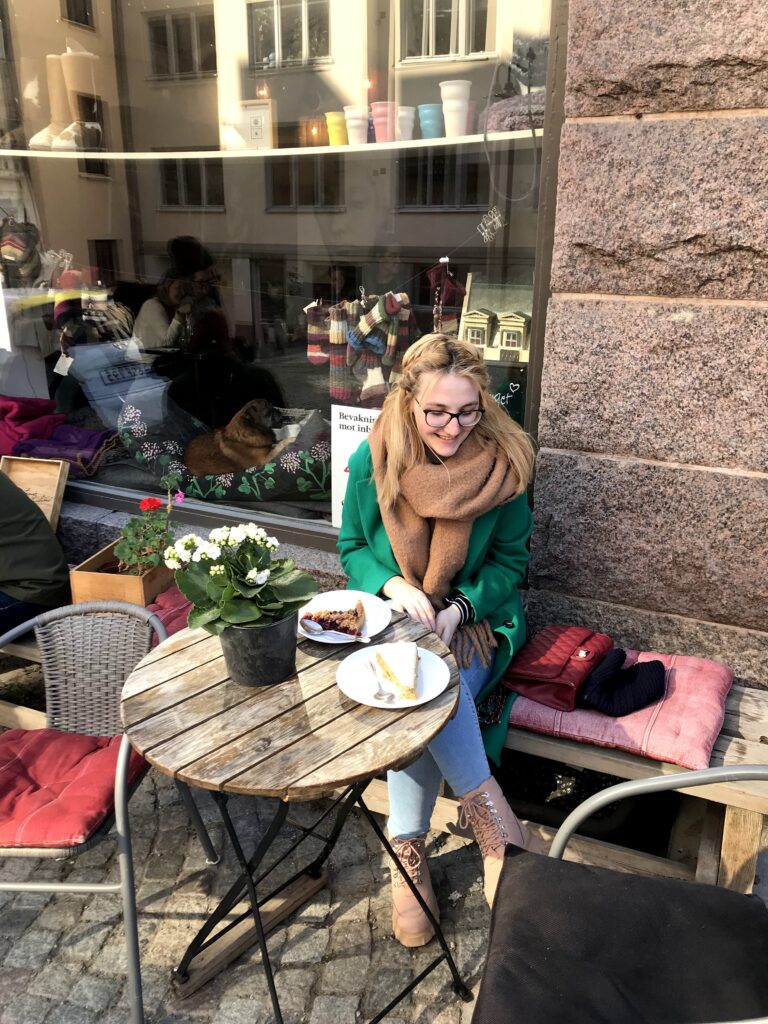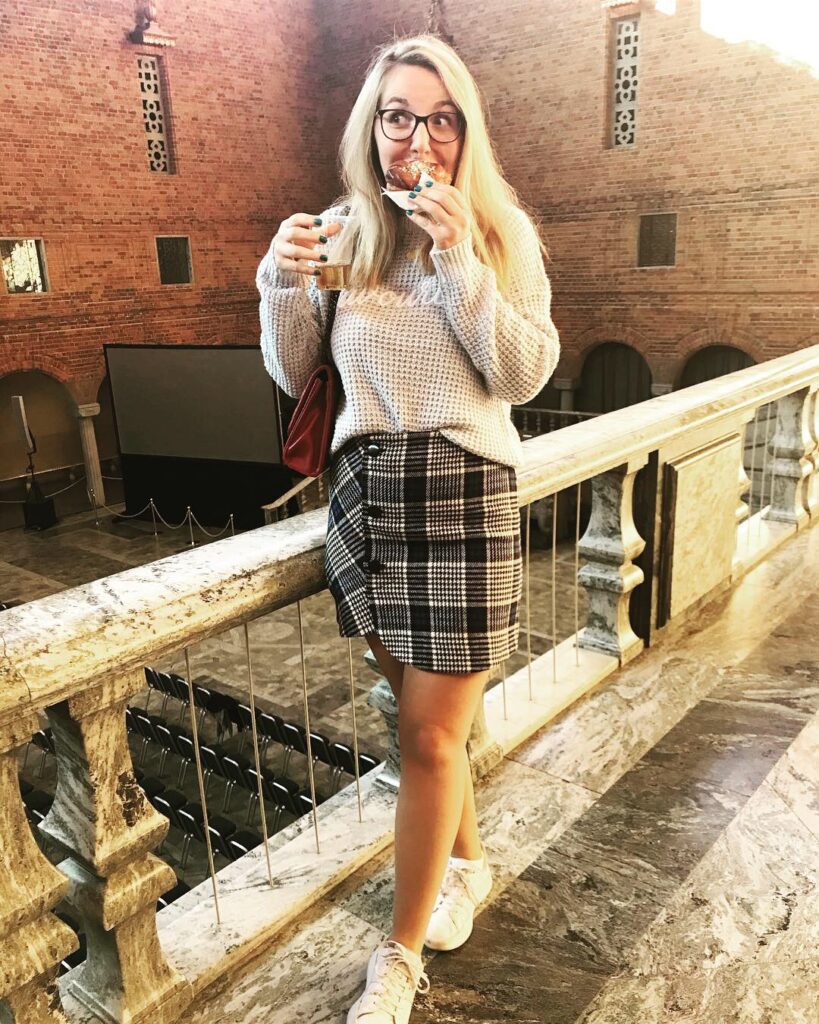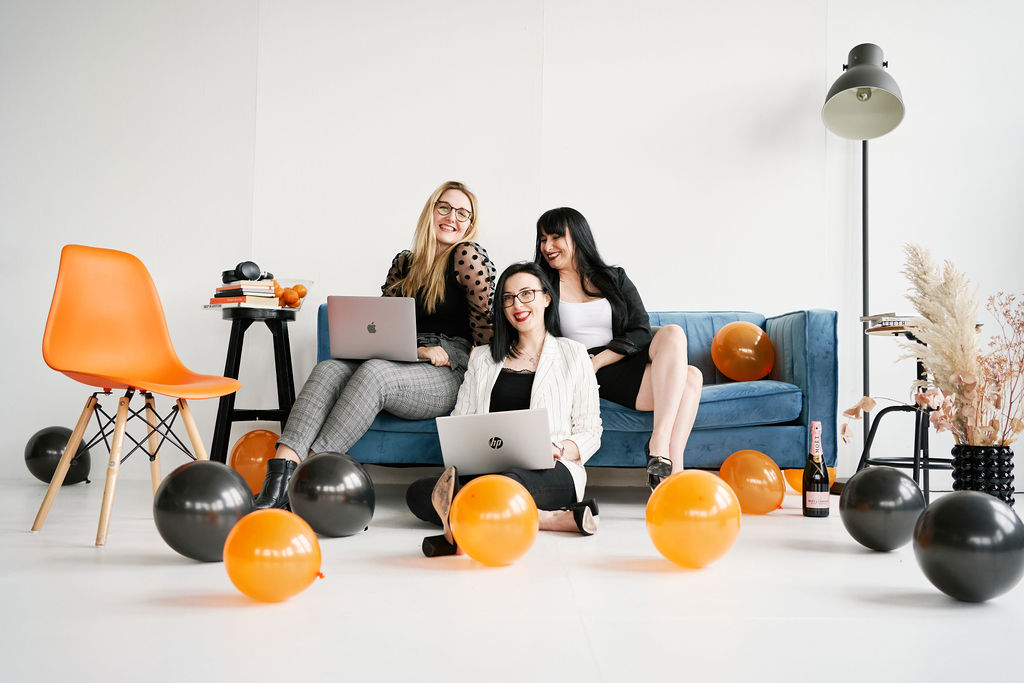Swedish fika is an art. For the past 2 years since I’ve lived in Sweden, I learnt one thing. Swedes take their fika very seriously.
What is the actual meaning of fika?
For those who aren’t partial to a bit of Swedish, “fika” is mostly a noun and it translates to coffee, but colloquially it’s often used as a verb (do you fika?). The full meaning of the word, to Swedes is “slowing down”, “taking a break to have coffee and socialise”. So what “fika” really stands for is “coffee, treat and socialise”.
Why the treat? Probably because Swedes like a bakery treat along with their tea and coffee. And let’s be honest, who doesn’t like a chokladboll, a cinnamon bun or a semlo?

Why are Swedes so attached to their fika?
All over Sweden, fika is a way of life. It means a time in the day where you just take a break. Whether it is to slow down, socialise with friends, reflect or just contemplate a moment of quiet, fika is something that Swedes really enjoy.
In the time I spent working in Sweden, fika was a regular in the office, around late mornings and in the afternoon (förmiddagsfika and eftermiddagsfika). It wasn’t an excuse to slack off, it was actually encouraged and many workplaces have a fika policy. Not only has it been shown that it increases productivity, but ideas often flow more freely when you’re chatting relaxed over coffee and pastry.
What does fika have to do with business?
Counter-intuitively, slowing down means gearing up. There have been quite a few studies showing the benefits of smaller breaks throughout the working day. Beyond the scientific proof, I’ve witnessed it firsthand. People feel less intimidated, hierarchy breaks down and suggesting new ideas is a lot more natural, when the conversation is less formal.
What’s new about having coffee you might be thinking. Absolutely nothing. From the Gates of Bosphorus to the Grand Central Plaza in Manhattan or Kremlin’s Red Square you will find coffee on the go pretty much everywhere. But that’s the thing. It’s not about sitting down and enjoying the brew anymore. It’s about getting that Venti pumpkin spiced latte on the go. Fika still has coffee at the heart of it, but it is all about embracing the slower pace.
When you have a business it becomes a lot harder to slow down. You simply forget and boundaries quickly shift around. That’s why fika seems the right way to go. Amid all the pressure, deadlines and work of a business, you have to make time for a drink, treat and chat.

What are the benefits of fika to Swedish businesses?
- Less burnout: small, consistent recovery breaks for employees led to less burnout and long-term sick leave.
- Productivity: Swedes have a pretty flat hierarchy, but because fika helps break the ice between staff, by socialising more, there is more opportunity for unpredicted collaborations and partnerships.
- Creativity: ground-breaking ideas hardly ever happen in a boardroom. They come about between friends, with no pressure, surrounded by good food and high spirits.
Do you fika?
In today’s society “I’m a workaholic” has become a badge of honour. Long hours are rewarded. Busy is good. But as this article in the Atlantic calls it; it’s all a bluff! We’re at an all-time high for logging the hours, in exchange for less efficiency. Work harder, stay later, answer emails immediately and check in on evenings has become the norm. We rewarded and praised this practice time and time again, that by now it’s simply expected.
And the price that businesses pay all over is steep. We have a record high number of overworked employees. The immediate correlation is stress, disengagement and burnout.
Personally, I think that in a world of busy people, Swedes are right to slow down.
Today’s fika…




